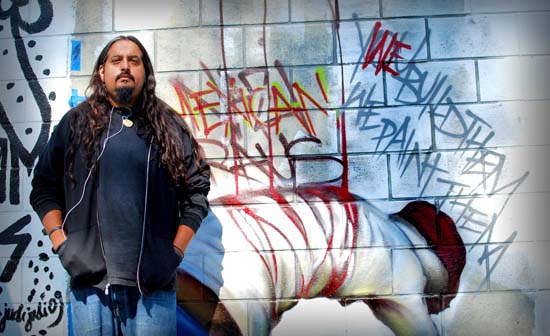Uwe Muench, 38, a native German now working as full-time staff for Chi Alpha Christian fellowship at UCLA, remembers the relevancy of the Berlin Wall in his young life.
“I grew up always with the Wall,” said Muench, who celebrated his 19th birthday the day before the wall fell. “I never thought that would change.”
Muench, an active member of the UCLA German club, said he never thought the fall of the wall would happen.
“It was amazing to see (the fall of the wall), and the joy of the people that traveled to West Germany,” he said.
On the night of Nov. 9, 1989, a divided Berlin no longer existed. Now, 20 years later, the memory of the physical wall and what it symbolized is being remembered through campus and citywide events.
The Berlin Wall was erected in 1961, and although Berlin was located deep in Soviet territory, Berlin itself was divided between Soviet powers and Western powers. West Berlin was divided under American, British and French control.
Escape attempts by people in East Berlin into West Berlin were not uncommon. According to the Wende Museum’s Web site, “Well over 100,000 citizens of the (German Democratic Republic) tried to escape.” Those who risked escaping encountered the dangers of crossing the wall, which included drowning and other fatal accidents, according to Wende Museum.
The fall of the Berlin Wall facilitated the travel of East Germans to West Germany. Once the wall was toppled, the geography of Germany changed. Berlin was no longer divided. People in East Berlin were then free to move west of the Berlin Wall.
On Friday, the Center for European and Eurasian studies held a symposium discussing the collapse of Communism and included many experts on the subject from universities across the nation.
“Many weren’t alive (yet),” said Gail Kligman, director of Center for European and Eurasian Studies, speaking in regards to the significance of the 20-year anniversary of the fall of the Berlin Wall for students. “It was a momentous event in recent history. … (I’m) not entirely clear of how aware students are of the event.”
Jan Kubik, professor of political science at Rutgers University, shared some of the same sentiment about the youthfulness of students, saying, “You are a generation that doesn’t remember communism.”
“(The) 20-year anniversary gives us occasion to look back and use (the fall of the Berlin Wall) as a teaching method,” Kubik said.
Kubik emphasized the importance of understanding the systematic change that occurred in Berlin once the wall collapsed.
“Once you understand what (the Soviet system) was, you can also appreciate (the) difficulty of building a new system,” he said.
Elsewhere in the city of Los Angeles, a more visible commemoration of the anniversary occurred Sunday night on Wilshire Boulevard. The Wende Museum, known as both a museum and Cold War archive, hosted an event called “An Evening in Celebration of The Wall Project.”
The event featured the reconstruction of a wall which stretched across the street to represent a divide similar to that of the wall. At midnight, the wall was torn down, mirroring the events that took place 20 years prior.
